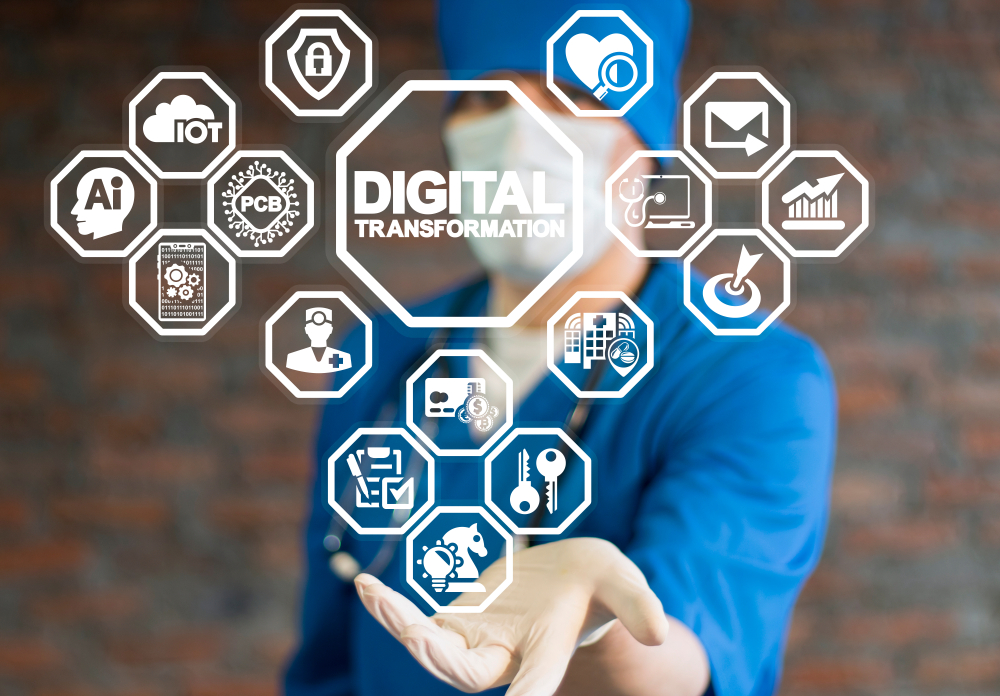Smart hospitals, also referred to as digital hospitals, the hospital of the future, or intelligent hospitals, are healthcare institutions that utilize advanced technology and data-driven solutions to optimize patient care, enhance operational efficiency, and improve overall healthcare services.
Medical facilities employ a wide array of digital tools and devices to gather, analyze, and act upon real-time data, ensuring that medical professionals can make informed decisions and deliver high-quality care to patients.
What Are the Core Elements of a Smart Hospital?
Internet of Things (IoT) Devices: Smart hospitals are equipped with a variety of IoT devices, including wearable health monitors, intelligent beds, and other interconnected medical devices.
The advanced healthcare technology continually collects patient data and transmits it to healthcare providers for real-time monitoring and analysis.
Artificial Intelligence (AI): AI-powered algorithms are an example of intelligent hospital technology used to analyze extensive amounts of medical data. These algorithms assist in disease diagnosis, predicting patient outcomes, and even suggesting treatment plans. Machine learning algorithms aid medical professionals in the hospitals of tomorrow to make faster and more precise decisions.
Telemedicine: Smart hospitals make use of telemedicine platforms to provide remote consultations and follow-up care, enabling patients to receive medical attention from the comfort of their homes.
This not only enhances accessibility but also reduces the strain on in-patient facilities.
Energy Efficiency: Futuristic hospitals incorporate energy-efficient technologies, such as intelligent lighting and heating and cooling systems, to curtail energy consumption and lower operational costs.
What Are the Advantages of Smart Hospitals?
Enhanced Patient Comfort and Satisfaction: Smart hospitals prioritize patient comfort and satisfaction by offering personalized care, reducing waiting times, and providing easy access to information.
Empowered Healthcare Providers: Real-time data and AI-driven insights empower healthcare providers to make more accurate diagnoses and treatment decisions, leading to improved patient outcomes.
Streamlined Hospital Operations: Automation and data analytics are intelligent hospital systems that streamline hospital operations, optimizing resource allocation and reducing administrative overhead.
Cost Reduction: Healthcare costs for both patients and providers are lowered in the hospital of the future through improved efficiency, reduced errors, and minimized waste.
Robust Cybersecurity Measures: Futuristic hospitals implement robust cybersecurity measures to protect patient data, ensuring privacy and compliance with regulatory requirements.
MEB has a range of smart solutions thatch be seamlessly intrigued with existing infrastructure, causing little to no disruption to running operations. Smart City
Ask one of our dedicated experts for more information on the energy, IoT and water solutions we have in our portfolio. Contact

